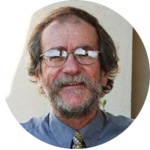Thank you to EM Software for advertising in the Convention program.
Visit EM Software at their Exhibitor Booth during the New England Newspaper Convention for more information about their services.
Visit EM Software at their Exhibitor Booth during the New England Newspaper Convention for more information about their services.
Visit Allison Systems Corporation at their Exhibitor Booth during the New England Newspaper Convention to find out more about their services.


Writing coach Jim Stasiowski welcomes your questions or comments.
Call him at
(775) 354-2872
or write to:
2499 Ivory Ann Drive
Sparks, NV 89436.
The TV commercial, which has run so often that I hit mute and recite all the lines in lip-sync with the actors, uses a fake bank robbery to allow the uniformed character to explain why he isn’t drawing a weapon to thwart the bad guys: “I’m not a security guard; I’m a security monitor.”
He calmly tells two incredulous patrons who dropped to the floor in terror that his job with the bank is simply to alert people when there is a robbery. In a tone as flat as the two patrons, he says, “There’s a robbery.”
The message is that while some identity-theft services merely “monitor” such thefts, the company paying for the commercial is far superior because it takes steps to protect its customers.
The little drama touched a nerve with me because the public’s disdain for newspapers and journalists often includes the criticism that we are little more than monitors of activity in our communities, passive observers who pass along what we witness, and that’s the extent of our action.
In fact, we sometimes sustain our image as mere “monitors.” If you’re a reporter or an editor, and you recently got a call accusing you of bias, you may have fallen back on the argument that “We just report the news; we don’t make it.”
Poppycock.
Any time we dig into misdeeds, from mere mistakes to felonies, we are turning such actions into news, for if the misdeeds are never made public, can we really define them as “news”?
If you wish to get all semantic on me, OK, I’ll accept the argument that everything could qualify as “news,” just as placing your garbage cans out for pickup technically qualifies as “history.” But when we do write about misdeeds, our goal isn’t merely to inform; our goal is to bring about change, improvement.
Right before New Year’s Day, The Wall Street Journal had a story about victims, people whose financial reputations were damaged by the unscrupulous acts of Wells Fargo. The story includes this paragraph: “Bank spokeswoman Mary Eshet said in a written statement Wells Fargo is contacting customers identified by the Journal ‘to ensure we resolve their situations to their satisfaction.’”
That goes far beyond mere monitoring; when newspapers act, others often follow.
When I was a reporter in the 1980s, my editor assigned me to see whether merchants sold cigarettes without checking IDs, thus tacitly ushering youngsters into the smoking habit. I thought the idea ridiculous and told my editor so. He prevailed. (Editors seem to do that a lot.)
We recruited a sweet-looking 14-year-old girl, a nonsmoker. I drove her from store to store, 10 in all, and rehearsed her on portraying a scared, unsure novice perhaps buying her first-ever pack from clerks who, by law, were not allowed to sell to anyone younger than 18.
After 10 stops, she had 10 packs of cigarettes. No sales clerk even blinked, and one, the 14-year-old told me, even gave her advice on which brand to buy.
Our hastily hatched sting may have had not the slightest effect on the subsequent nationwide tightening of the sales-to-teens laws, but whenever I see one of those signs promising that stores check IDs for tobacco purchases, I smile.
In our news sections, as opposed to editorial pages, we don’t tell readers or civic leaders what actions to take, but we do more than merely monitor, more than observe. If I spent all those years as a monitor, explain to me why so many people felt aggrieved by what I wrote or edited and called to accuse me of bias.
I blame Teddy Roosevelt and his famous 1910 “Man in the Arena” speech. TR, an enlightened public servant but also no slouch at both ego and self-promotion, was painting a glowing portrait of himself and an insulting one of those who opposed him when he said, in part: “It is not the critic who counts; not the man who points out how the strong man stumbles … The credit belongs to the man who is actually in the arena … . (W)ho at the best knows in the end the triumph of high achievement, and who, at the worst, if he fails, at least fails while daring greatly, so that his place shall never be with those cold and timid souls who neither know victory nor defeat.”
“(T)he critic” he excoriated probably was a reporter. As Louis Filler wrote in his book “Muckrakers: Crusaders for American Liberalism”: “Roosevelt was generally held responsible for the appearance of the muckrakers and identified with them, despite the fact that he himself in anger gave them their opprobrious name.”
Most journalists have dared greatly, and many have fallen short. But very few are either cold or timid, and all have known both victory and defeat.
(Personal to Teddy: You needed an editor. “(N)either” in the last sentence should be between “know” and “victory.”)
THE FINAL WORD: “Opprobrious” means “abusive” or “disrespectful.”
Harry B. Thayer III, 81, of Exeter, N.H., died Dec. 27.
Thayer began his career at a Hampton, N.H., newspaper, after learning in a school how to repair and operate Linotype machines.
Thayer then was hired by his father to work at The Exeter (N.H.) News-Letter, where he later was editor and co-publisher. He eventually became vice president and treasurer of the family-owned Exeter News-Letter Co., which published 13 weekly newspapers in the area before it was sold to the Ottaway Newspapers Inc. chain, He was also president of Rockingham County Newspapers in New Hampshire, and later founded Thayer Printing Co. Inc. in Exeter N.H.
In the early days of his newspaper career, Thayer was a volunteer firefighter with the Exeter Fire Department. He later was vice president of the Exeter Firemen’s Relief Association, president of the Seacoast Chief Fire Officers’ Mutual Aid District, and deputy chief of the Exeter Fire Department.
Thayer also held several positions with the town of Exeter, including president of the Economic Development Commission, chairman of the Budget Recommendations Committee, a member of the Zoning Board of Adjustment, and a member of the Exeter Parks and Pool Committee.
He leaves his wife, Janice; four children, Melissa, Heather, Christopher and Amanda; seven grandchildren; three siblings.
The obituaries were written, at least in part, from published reports by Bulletin correspondents Ashleane Alabre, Sophie Cannon, Jenna Ciccotelli, Nico Hall, Bailey Knecht, Joshua Leaston, Hope Oje, and Julia Preszler, undergraduate students at Northeastern University.
Our five freedoms will work, if we work at it
Gene Policinski, inside the First Amendment
Gene Policinski is chief operating officer of the Newseum Institute and senior vice president of the Institute’s First Amendment Center. He can be reached at gpolicinski@newseum.org.
Follow him on Twitter:
@genefac
Our First Amendment freedoms will work — if we still have them around to use.
Those five freedoms — religion, speech, press, assembly and petition — have been challenged at various times in our nation’s history, as many people would say they are today.
But the very freedoms themselves provide the means and mechanisms for our society to self-correct those challenges, perhaps a main reason why the First Amendment has endured, unchanged, since Dec. 15, 1791.
Case in point: The tragic mass shooting in Orlando, Fla., June 12 was followed by a burst of anti-Islamic rhetoric across the country after the killer declared allegiance to ISIS. The speech, however hateful, generally was protected by the First Amendment.
Also, Muslim leaders decried the use of their faith to justify hatred of the United States or homophobic terrorism. And opposition was ramped up to the idea of increased surveillance of Muslims in America and now-President-elect Donald Trump’s suggestion for a temporary ban on Muslims entering the United States.
In two rounds of national polling in the Newseum Institute’s annual State of the First Amendment survey, support for First Amendment protection for “fringe or extreme faiths” actually increased after the Orlando attack, compared with sampling done in May.
The number of people who said First Amendment protection does not extend to such faiths dropped from 29 to 22 percent. In both surveys, a little more than 1,000 adults were sampled by telephone, and the margin of error in the surveys was plus or minus 3.2 percentage points.
The First Amendment is predicated on the notion that citizens who are able to freely debate — without government censorship or direction — will exchange views, sometimes strongly and on controversial subjects, but eventually find common ground.
Of course, that kind of vigorous and robust exchange in the marketplace only can happen if there is a “marketplace” — freedom for all to speak — and a willingness to join with others in serious discussion, debate and discourse that has a goal of improving life for us all.
Here’s where the survey results turn ominous: Nearly four in 10 of those questioned in the 2016 State of the First Amendment survey, which was released July 4, could not name unaided a single freedom in the First Amendment.
Perhaps not identifying by name even one of the five freedoms is not the same as not knowing you have those core freedoms. But neither does the result build confidence that, as a nation, we have a deep understanding of what distinguishes our nation among all others and is so fundamental to the unique American experience of self-governance.
We have thrived as a nation with a social order and a government structure in which the exchange of views is a key to solving problems. The nation’s architects had a confidence and optimism that such exchanges in the so-called “marketplace of ideas” would ultimately work for the public good.
What would those founders think of a society in which so many people seem to favor the electronic versions of divided “marketplaces” that permit only that speech of which you already approve or that confirms your existing views?
Or worse yet, a society in which the five freedoms are used as weapons — from cyberbullying to mass Twitter attacks to deliberate distribution of “fake news” — to set ablaze figuratively or tear down an opponent’s stand?
As a nation, we cannot abandon the values of our First Amendment freedoms that protect religious liberty, that defend free expression at its widest definition and that provide a right to unpopular dissent, without fundamentally changing the character of our nation.
As a people, we must stand in defense of the values set out in the First Amendment and Bill of Rights some 225 years ago, even as we face one of the deepest public divides on a range of issues in our history.
And we must revisit and renew our faith in a concept expressed in 1664 by English poet and scholar John Milton and later woven deep into the institutional fabric of America: that in a battle between truth and falsehood, “who ever knew truth put to the worse in a free and open encounter?”